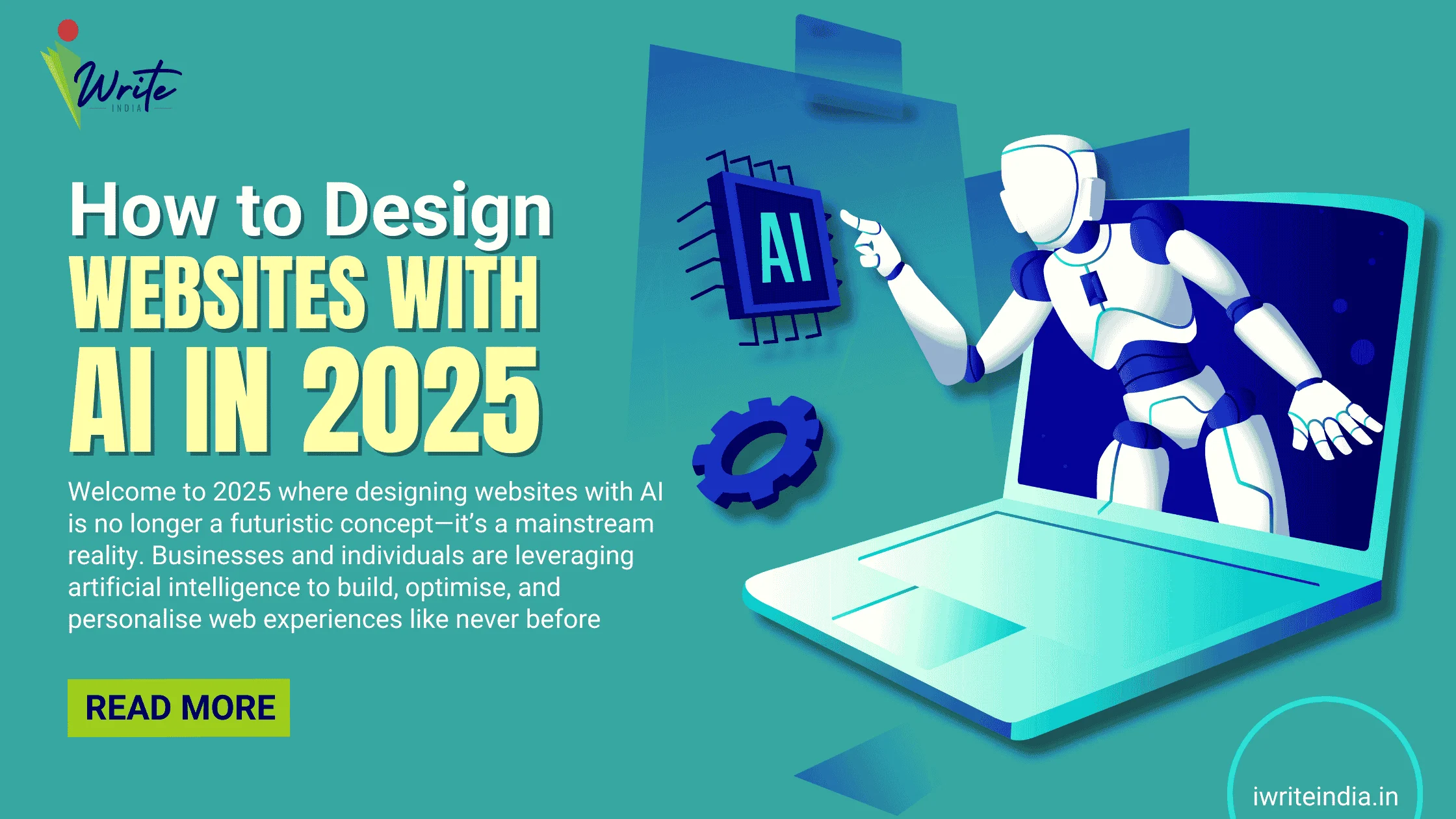
Welcome to 2025 where designing websites with AI is no longer a futuristic concept—it’s a mainstream reality. Businesses and individuals are leveraging artificial intelligence to build, optimize, and personalize web experiences like never before. But how does one effectively use AI for website design while maintaining creativity and uniqueness?
Let’s check how AI is transforming website development, the best practices to follow, and what to consider when choosing AI-driven tools to build your website.
AI in Website Design – The Dramatic Shift
AI-powered website design has grown significantly in the last few years, with studies showing that AI-driven website builders reduce development time by up to 70% while improving user engagement by 30% on average. Unlike traditional design methods, where every element must be manually created, AI-based platforms analyse data, generate layouts, and even optimise performance based on user behaviour.
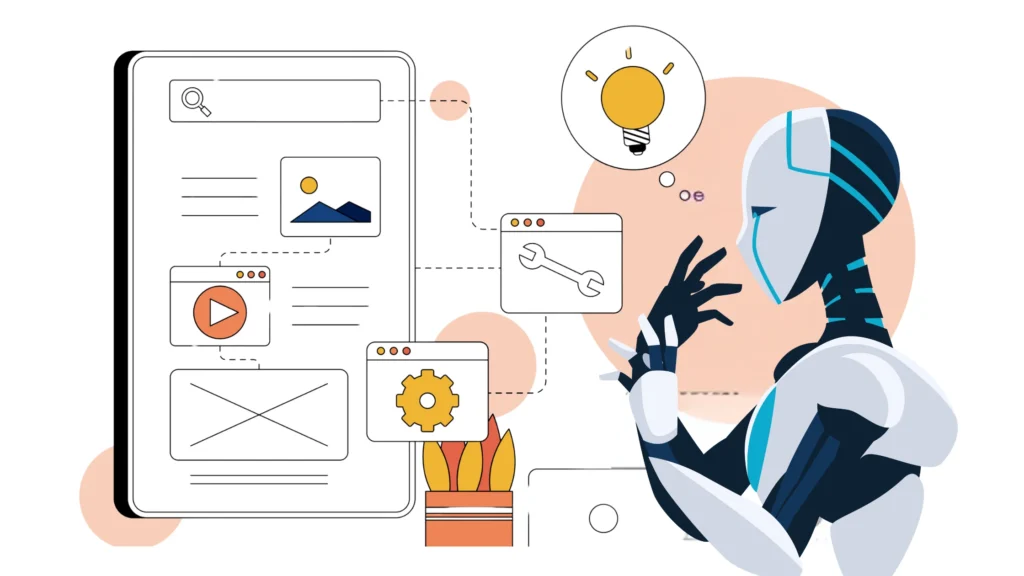
According to Forrester Research, 61% of digital marketing leaders have already implemented AI in their web design strategies, with expectations that the number will rise to 80% by the end of 2025. For businesses looking for efficiency without compromising quality, using AI for website design has become an essential strategy. This is particularly relevant for startups, e-commerce stores, and service providers who need an effective online presence with minimal resources.
How AI Transforms Website Design?
Here’s how AI is making website design smarter, faster, and more efficient:
Automated Website Creation
AI-based platforms allow users to create websites using AI by analysing industry trends, user intent, and existing content to suggest layouts and structures that are visually appealing and functional.
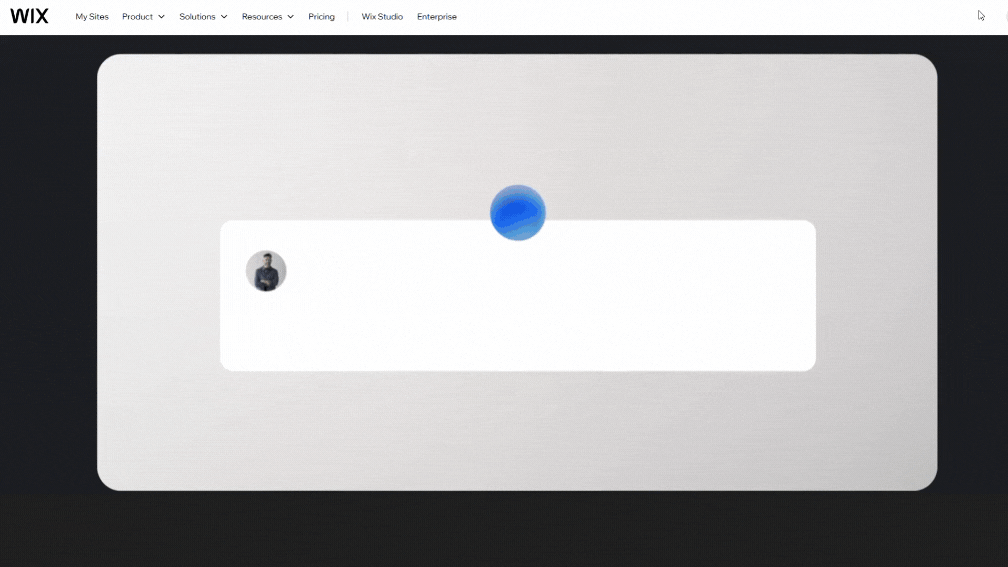
Image Source: Wix.com
Wix ADI (Artificial Design Intelligence) allows users to create a website by answering a few simple questions. It automatically generates a complete site with relevant design, images, and text.
Personalization at Scale
According to McKinsey & Company, personalised experiences powered by AI increase conversion rates by 10% to 30%. AI enables dynamic personalisation, meaning websites can adjust content, images, and user interactions based on browsing history and behaviour.
Amazon’s website dynamically changes product recommendations, offers, and homepage layouts based on users’ previous browsing and purchase behaviour, providing a highly personalised experience.
AI-Powered Chatbots and Assistants
Websites now integrate AI-driven chatbots to enhance customer support, answer questions, and guide users to relevant sections without human intervention. Gartner predicts that by 2026, 85% of customer interactions will be handled by AI chatbots.
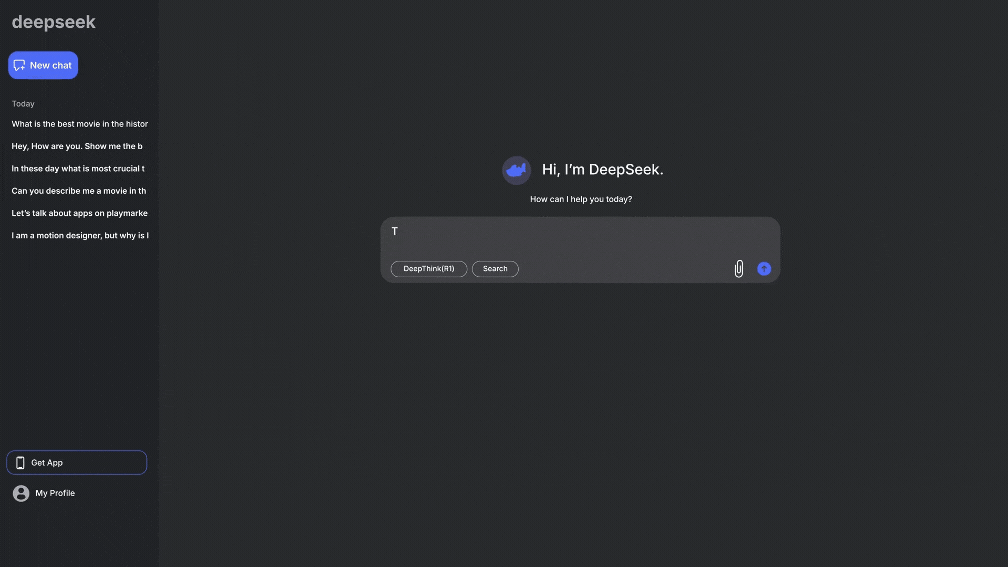
Image Source: deepseek.com
Chatbots like Drift and Intercom use AI to interact with customers in real-time, answering FAQs, guiding them through the website, and even booking appointments or demos.
Improved UX & UI Design
AI optimises user interface (UI) elements by analysing user engagement and suggesting adjustments to enhance navigation, readability, and responsiveness. Data from Adobe indicates that AI-powered UX optimisation leads to a 22% higher customer retention rate.
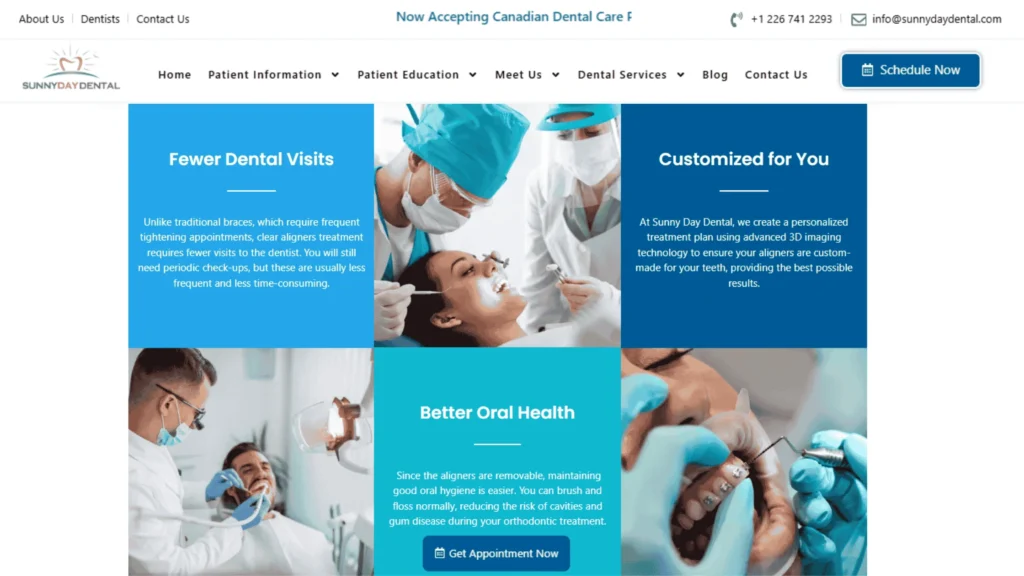
Adobe Sensei, an AI-powered design assistant, helps designers and marketers by automating image cropping, font selection, and layout design, ensuring a visually appealing user experience.
SEO and Performance Optimization
AI tools continuously monitor and improve page speed, keyword rankings, and accessibility, ensuring websites remain competitive in search engine results. Google’s Page Experience update emphasises AI-driven SEO strategies, which improve website ranking by 32%.
AI-based SEO tools, such as Clearscope and Surfer SEO, analyse top-ranking content and provide data-driven recommendations for optimizing blogs, landing pages, and other website content.
Best Practices for Designing Websites With AI
Here’s the catch – to fully leverage AI in website design, it’s essential to follow some best practices that ensure efficiency, creativity, and user engagement. Here are some:
Choose the Right AI Tools
Not all AI website builders are created equal. The key is to select platforms that offer:
- Smart design recommendations
- Responsive templates
- SEO integration
- E-commerce compatibility
- Personalization features
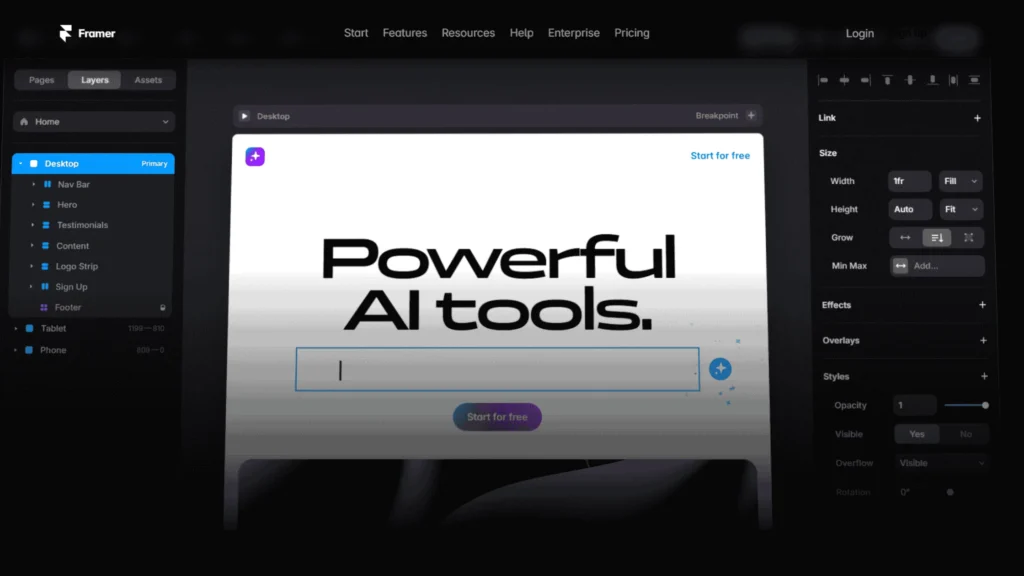
Platforms like Wix ADI, Bookmark AiDA, and Framer AI are leading the way in AI for website design, each offering different levels of automation and customisation. Research indicates that businesses using AI-driven website builders experience a 40% faster go-to-market time.
Balance AI Automation With Human Creativity
While AI can generate designs quickly, adding a human touch is what makes a website unique. A survey by HubSpot found that 78% of users feel more emotionally connected to websites with human-driven design elements. Ensure that your brand’s identity, tone, and style are infused into the AI-generated designs.
Prioritize User Experience (UX)
AI can analyse user behaviour to refine website structures, but businesses should also:
- Use intuitive navigation
- Optimise page load speed (Google states that websites loading within 3 seconds see a 53% lower bounce rate.)
- Maintain mobile responsiveness (Studies show that 61% of users are unlikely to return to a website that isn’t mobile-friendly.)
- Incorporate engaging visuals and interactive elements
Implement AI for Continuous Improvement
One of the biggest advantages of AI is its ability to learn and improve over time. Use AI analytics to:
- Track visitor interactions
- Identify weak-performing pages
- Optimise content dynamically
Work With a Professional Website Design Agency
For businesses looking for custom solutions, partnering with a website design agency in Delhi specialising in AI-driven development can bring the best results. A professional team ensures that AI-powered tools are used effectively without compromising creativity and brand essence.
What is the Future of AI in Website Design?
Looking ahead, AI will play an even more integral role in web development. With advancements in AI-driven code generation, voice search optimisation, and augmented reality (AR) integrations, websites will become more interactive and personalised.
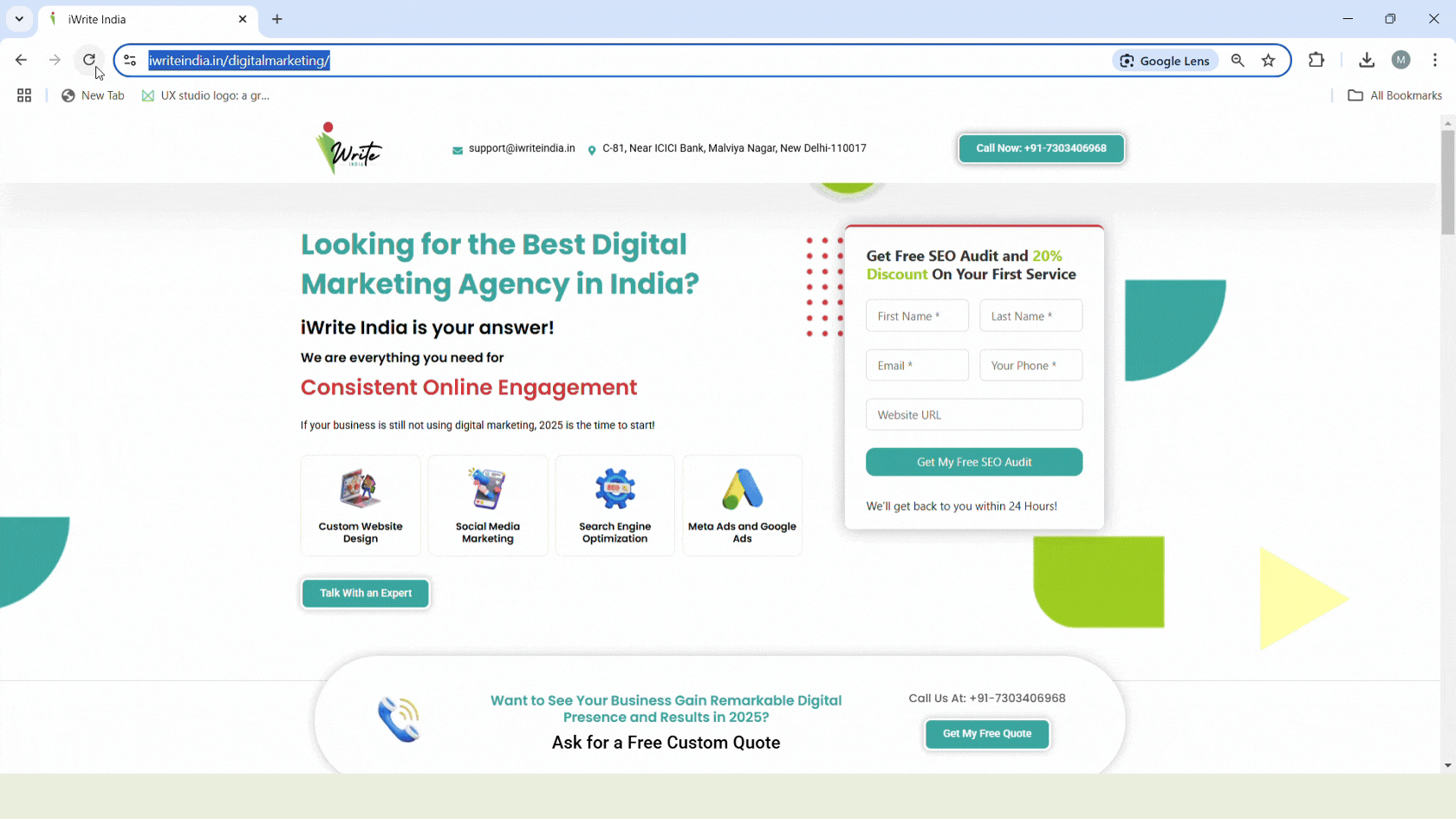
According to Statista, the AI-powered website design market is projected to reach $2.3 billion by 2026, indicating a massive shift towards automated solutions. Businesses that adapt early to these innovations will stay ahead of the competition. Whether you’re a startup or an established brand, incorporating AI into your web design strategy is no longer optional—it’s a necessity.
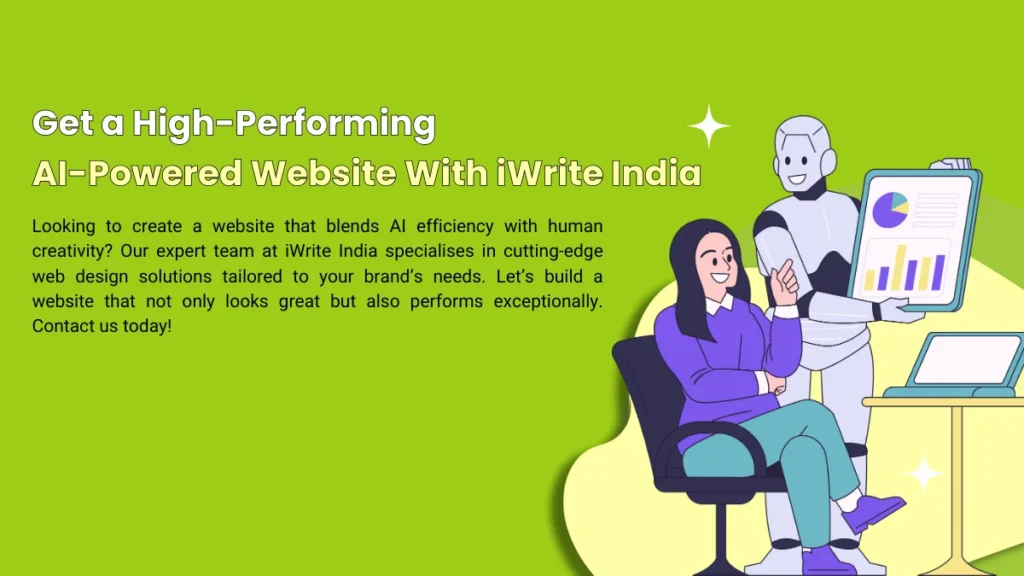
FAQs About Design Websites With AI
1. Can I build a website entirely with AI?
Yes, AI tools can design, develop, and optimise websites, but human creativity is essential for branding, storytelling, and authenticity. To effectively design websites with AI, it’s important to balance automation with a human touch to create a compelling and engaging digital experience.
2. What are the best AI tools for website design?
Some of the best AI tools for web design include Wix ADI, Framer AI, Durable, 10Web, and Adobe Sensei.
3. How does AI help with website SEO?
AI enhances SEO by analysing keywords, optimising content, improving readability, and structuring web pages for higher rankings.
4. Are AI-generated websites better than traditional ones?
AI-powered websites are faster, smarter, and more data-driven, but to successfully design websites with AI, human creativity is still essential for branding and storytelling.
5. How do AI chatbots improve website engagement?
AI chatbots provide instant support, answer questions, and guide users, leading to higher engagement and conversions.
6. How does AI enhance the mobile responsiveness of a website?
AI-driven web design tools ensure seamless mobile experiences by automatically adjusting layouts, fonts, and images based on screen size. They analyse real-time data to optimise page load speeds and navigation. To create a website using AI, ensure it includes AI-powered mobile optimisation to enhance user experience and search rankings.
7. Can AI help improve website accessibility for differently-abled users?
Yes, AI for website design includes smart accessibility features like voice commands, automatic alt-text generation, and adaptive UI adjustments. AI ensures screen readers can interpret content correctly and optimises colour contrast for users with visual impairments. A website design agency in Delhi can help integrate AI-powered accessibility tools to make your website inclusive and user-friendly.
8. How does AI assist in website maintenance and updates?
AI automates website updates, security patches, and content optimisation to ensure your site remains relevant and high-performing. AI-driven monitoring tools detect broken links, outdated pages, and slow-loading elements in real time. If you create a website using AI, you can integrate auto-updating features that improve efficiency and reduce manual work.
9. Can AI help in branding and design consistency across a website?
Absolutely! AI-powered branding tools analyse brand colours, fonts, and design elements to ensure a consistent visual identity across all pages. AI tools suggest colour palettes, typography combinations, and imagery styles that align with your brand’s identity. A website design agency in Delhi specialising in AI-driven design can leverage these tools to maintain a cohesive brand experience.
10. How does AI improve lead generation and conversion rates on a website?
AI analyses visitor behaviour, predicts buying intent, and personalises content to increase conversions. It dynamically adjusts CTAs, recommends products, and automates follow-ups to nurture leads efficiently. AI-powered chatbots also capture leads and engage users 24/7. Implementing AI for website design ensures your site is optimised for maximum engagement and conversions.



